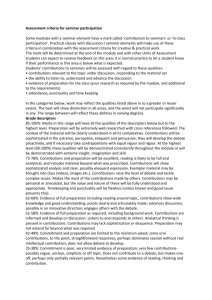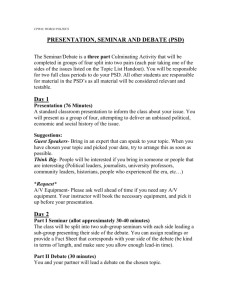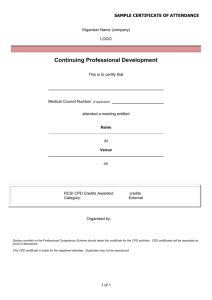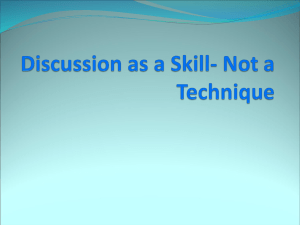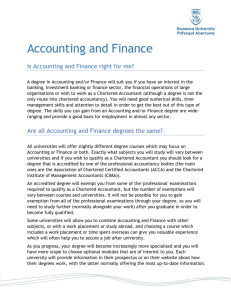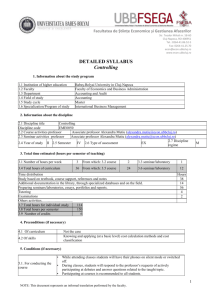The Chartered Teacher Programme at the University of
advertisement
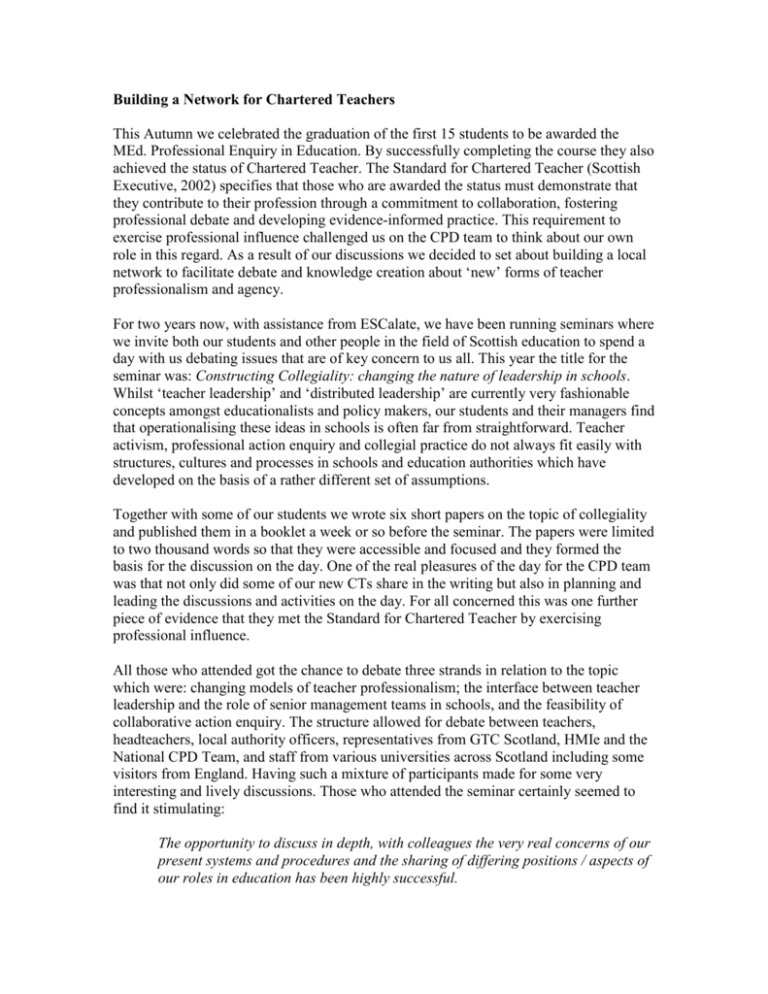
Building a Network for Chartered Teachers This Autumn we celebrated the graduation of the first 15 students to be awarded the MEd. Professional Enquiry in Education. By successfully completing the course they also achieved the status of Chartered Teacher. The Standard for Chartered Teacher (Scottish Executive, 2002) specifies that those who are awarded the status must demonstrate that they contribute to their profession through a commitment to collaboration, fostering professional debate and developing evidence-informed practice. This requirement to exercise professional influence challenged us on the CPD team to think about our own role in this regard. As a result of our discussions we decided to set about building a local network to facilitate debate and knowledge creation about ‘new’ forms of teacher professionalism and agency. For two years now, with assistance from ESCalate, we have been running seminars where we invite both our students and other people in the field of Scottish education to spend a day with us debating issues that are of key concern to us all. This year the title for the seminar was: Constructing Collegiality: changing the nature of leadership in schools. Whilst ‘teacher leadership’ and ‘distributed leadership’ are currently very fashionable concepts amongst educationalists and policy makers, our students and their managers find that operationalising these ideas in schools is often far from straightforward. Teacher activism, professional action enquiry and collegial practice do not always fit easily with structures, cultures and processes in schools and education authorities which have developed on the basis of a rather different set of assumptions. Together with some of our students we wrote six short papers on the topic of collegiality and published them in a booklet a week or so before the seminar. The papers were limited to two thousand words so that they were accessible and focused and they formed the basis for the discussion on the day. One of the real pleasures of the day for the CPD team was that not only did some of our new CTs share in the writing but also in planning and leading the discussions and activities on the day. For all concerned this was one further piece of evidence that they met the Standard for Chartered Teacher by exercising professional influence. All those who attended got the chance to debate three strands in relation to the topic which were: changing models of teacher professionalism; the interface between teacher leadership and the role of senior management teams in schools, and the feasibility of collaborative action enquiry. The structure allowed for debate between teachers, headteachers, local authority officers, representatives from GTC Scotland, HMIe and the National CPD Team, and staff from various universities across Scotland including some visitors from England. Having such a mixture of participants made for some very interesting and lively discussions. Those who attended the seminar certainly seemed to find it stimulating: The opportunity to discuss in depth, with colleagues the very real concerns of our present systems and procedures and the sharing of differing positions / aspects of our roles in education has been highly successful. I’ve found it useful to explore “what next” and have found the discussions heartening. I liked your papers in the booklet that drew on CT participants’ experiences. It has become clear that structural change is going to be required to accommodate this ‘new’ professional role, which in hindsight was created with little thought as to the big picture; interesting times obviously lie ahead. The strength of these seminars, as Christine Forde from Glasgow University pointed out in summing up the day, lies both in the different perspectives and methodologies used to explore a key issue and in providing people with very different roles a place where they can meet to express and debate their ideas with each other. We intend to follow up this seminar with the publication of a web magazine which will serve as a site for accessing the articles from both the CPD seminars, as well as sharing the outcomes of collaborative and individual professional enquiries in schools, reflections on policy issues, and news items. With ESCalate’s assistance we have got off to a good start with this new venture which we hope will serve as an important site for learning and the generation of new ideas for all those involved, including ourselves.
